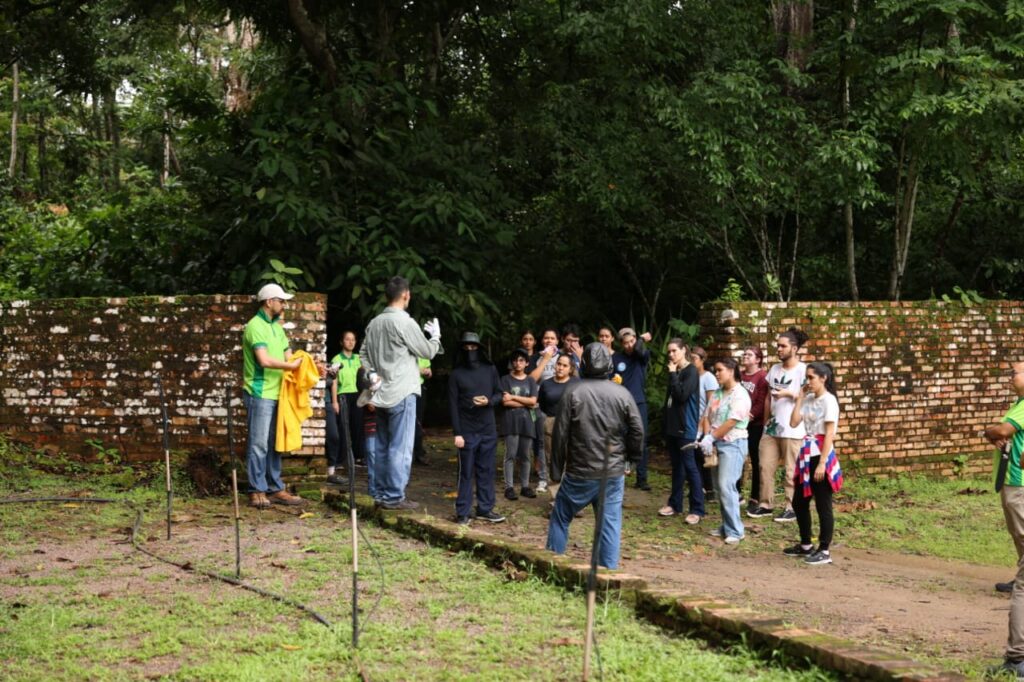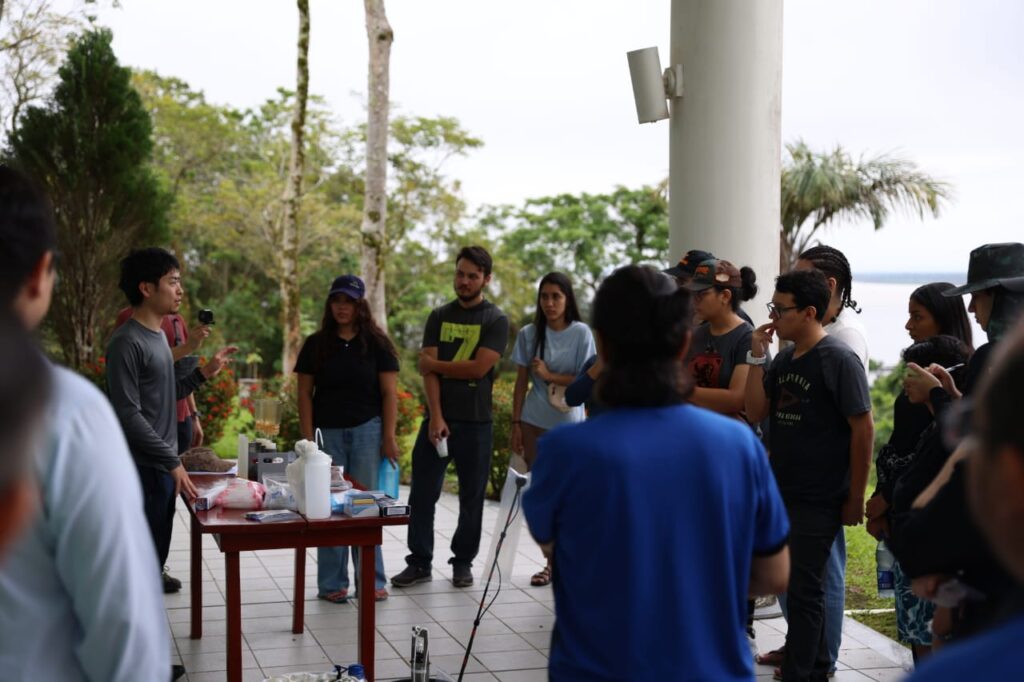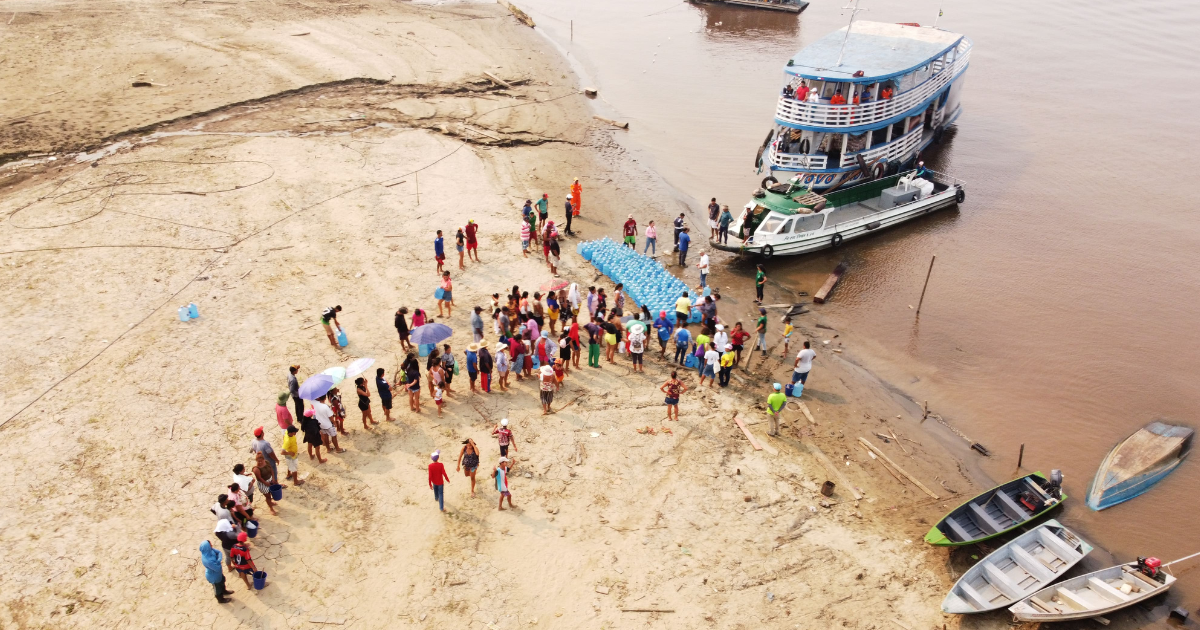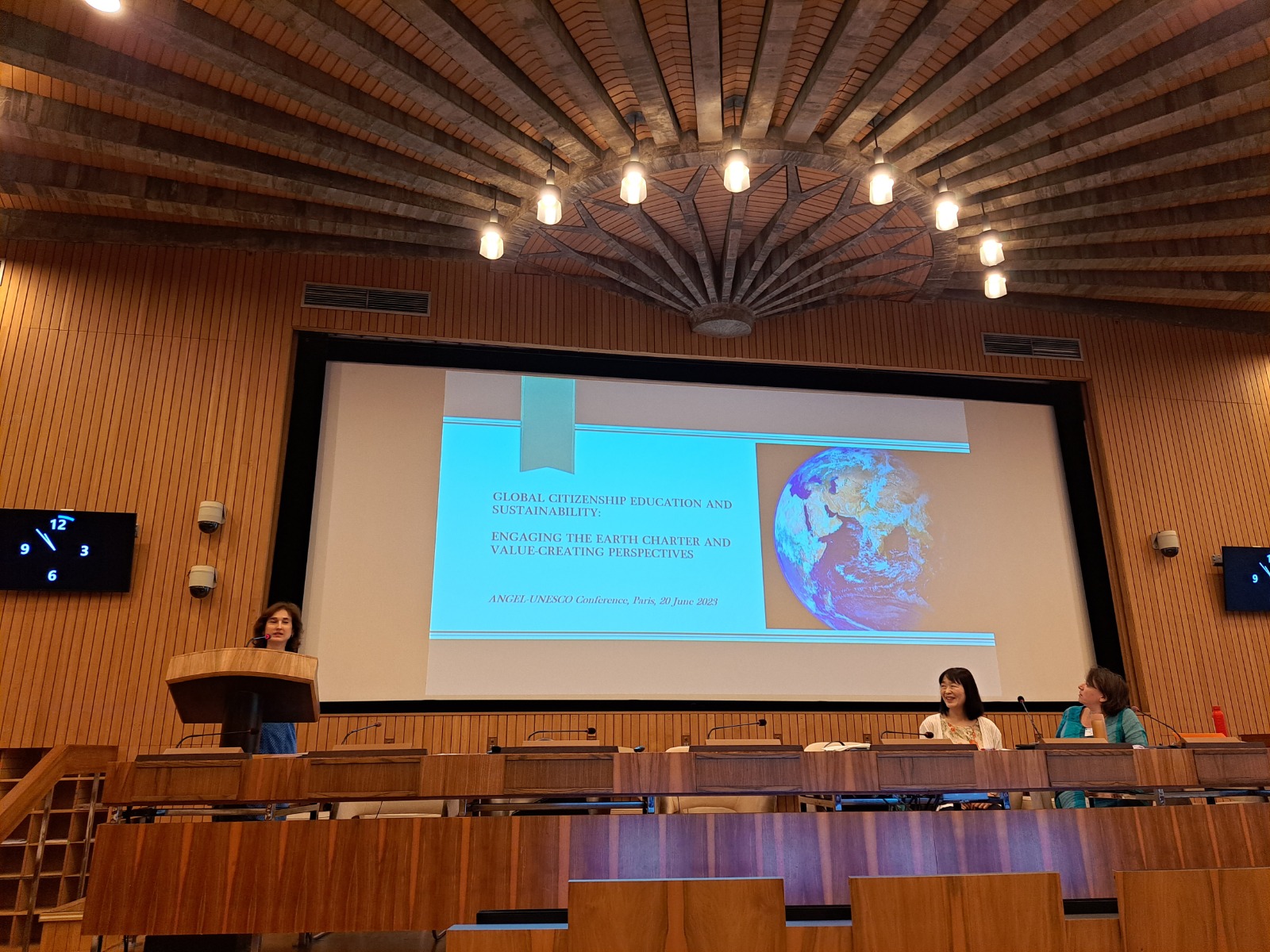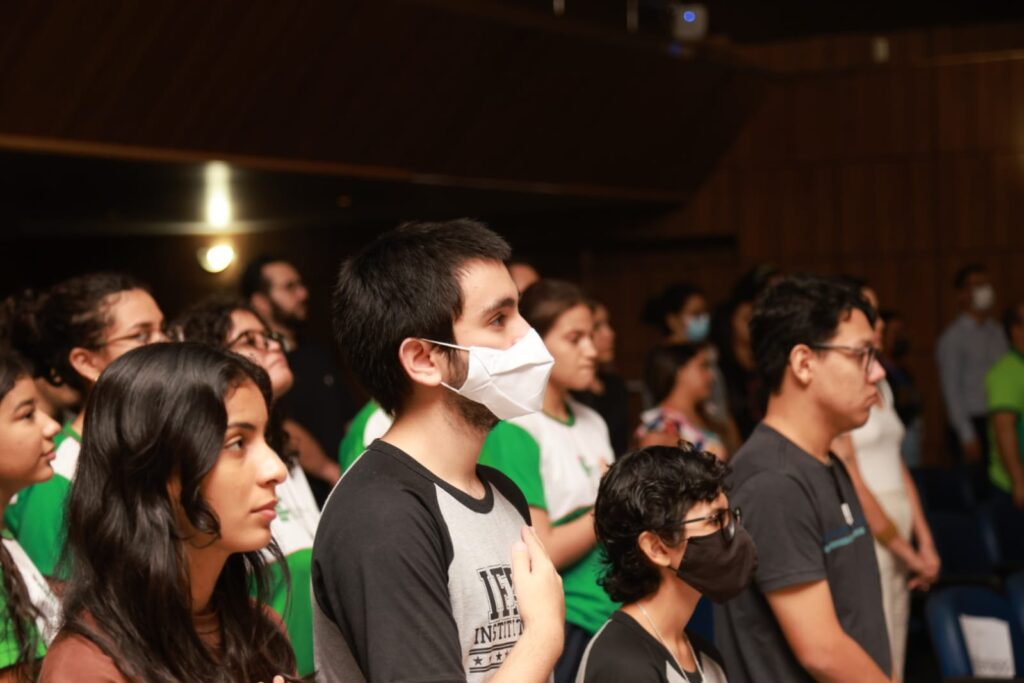Thirteen students of Chemistry and Biology of the Federal Instituteof Amazonas (IFAM) have attended, on March 7and 8, theoretical and practical classes conducted by professorsof Soka University – Japan, at the headquarters of the Soka Amazon Institute, as part of the Workshop of Practical Sciences and Environmental Education in the Amazon.
The workshop – hosted by the Soka Amazon Institute, Soka University and IFAM – aims to stimulate the exchange of knowledge among the institutions and contribute to the development of research in areas of great importance to the Amazon region, such as Water, Soil and Sunlight.
Na manhã da terça (7 de março), os alunos selecionados para o programa assistiram a palestras dos professores Yoshiki Takayama, Victor Kuwahara e Shinjiro Sato, na Sede do Instituto Soka Amazônia.
On Tuesday morning (March 7), the students enrolled in the program attended lectures by professors Yoshiki Takayama, Victor Kuwahara and Shinjiro Sato at the headquarters of the Soka Amazon Institute.

Professor Yoshiki Takayama, of the Soka University’s Institute of Plankton Eco-Engineering, gave his presentation on Aquatic Sciences, highlighting, among other aspects, the magnitude of the great presence of water on Planet Earth: 71% is covered by water and there are 1.4 billion km3 of water on the planet.
He also explained in detail the water cycle and its importance in the food chain of various aquatic ecosystems, such as plankton, aquatic microorganisms that he studies.

Professor Victor Kuwahara of Soka University’s Laboratory of Optical Oceanography presented the lecture The Energy of Life: Sunlight. With data and playful reflections, he instigated in the students a reflection on the reasons for measuring sunlight.
Among the aspects raised by the professor is the impact of this energy on the different forms of life on Earth, such as the planet’s energy balance, the relationship with plant photosynthesis, and the primary production of different ecosystems, terrestrial and oceanic.

In the Soil Science lecture, Professor Shinjiro Sato gave an overview of how the various types of soils are formed, their location in Brazil and in the world, and the relationship between the nutrients present in the soil for the growth of plants. He ended the lecture by explaining the methodology for soil sampling to be performed during the Workshop.
Because of students’ asked for, Sato explained about Soka University’s courses and graduate programs, admission’s requirements, and possibilities for international students to be enrolled.
The afternoon was dedicated to the practical part of the program, when the students were able to collect environmental data at four sites in the Dr. Daisaku Ikeda private reserve, headquarters of the Soka Amazon Institute. Divided into four groups, under the guidance of Soka University professors, the students collected four types of soil and measured sunlight.
On Wednesday (March 8) it was the time for sample collection for the study of Water in an expedition to the Encounter of Waters.
All collected data will be sent to the IFAM Laboratory for processing and analysis. All data collected and its results will be part of the discussions between teachers and students at the end of the workshop.
Here are some images of the special moments of the practical part of the Workshop



